On May 21, the second installment of the “Navigating the Sea of Numbers: Professors' Tea Talk” series was successfully held at the “One-Stop” Student Community in Hubin Building 7. This session featured Professor Zhao Huijiang as the keynote speaker, who shared his academic journey, life insights, and understanding of mathematics under the theme “The Beauty of Mathematics and Reflections on Life.” Over a dozen undergraduate and graduate students attended the event, which was hosted by undergraduate student Chen Muyu.
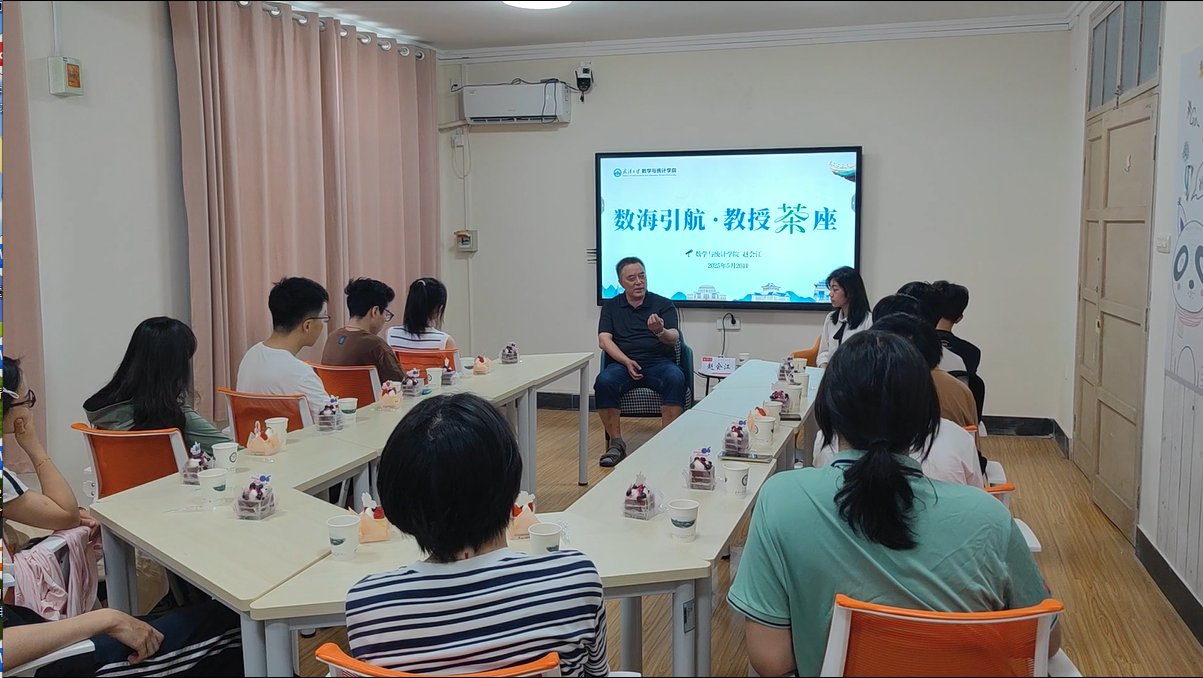
In his keynote address, Professor Zhao fondly reflected on his academic journey. From the anxiety of tackling “the most challenging math question in college entrance exam history” in 1984, to amusing anecdotes of taking the exam in a county town for the first time, and witnessing the dramatic urban transformation around Wuchang Railway Station—once surrounded by farmland—upon arriving in Wuhan, he expressed profound admiration for the nation's arduous progress and remarkable achievements over four decades. He also fondly remembered the faculty at Central China Normal University (formerly Central China Normal College), whose care for students and dedication to teaching remain deeply appreciated to this day.
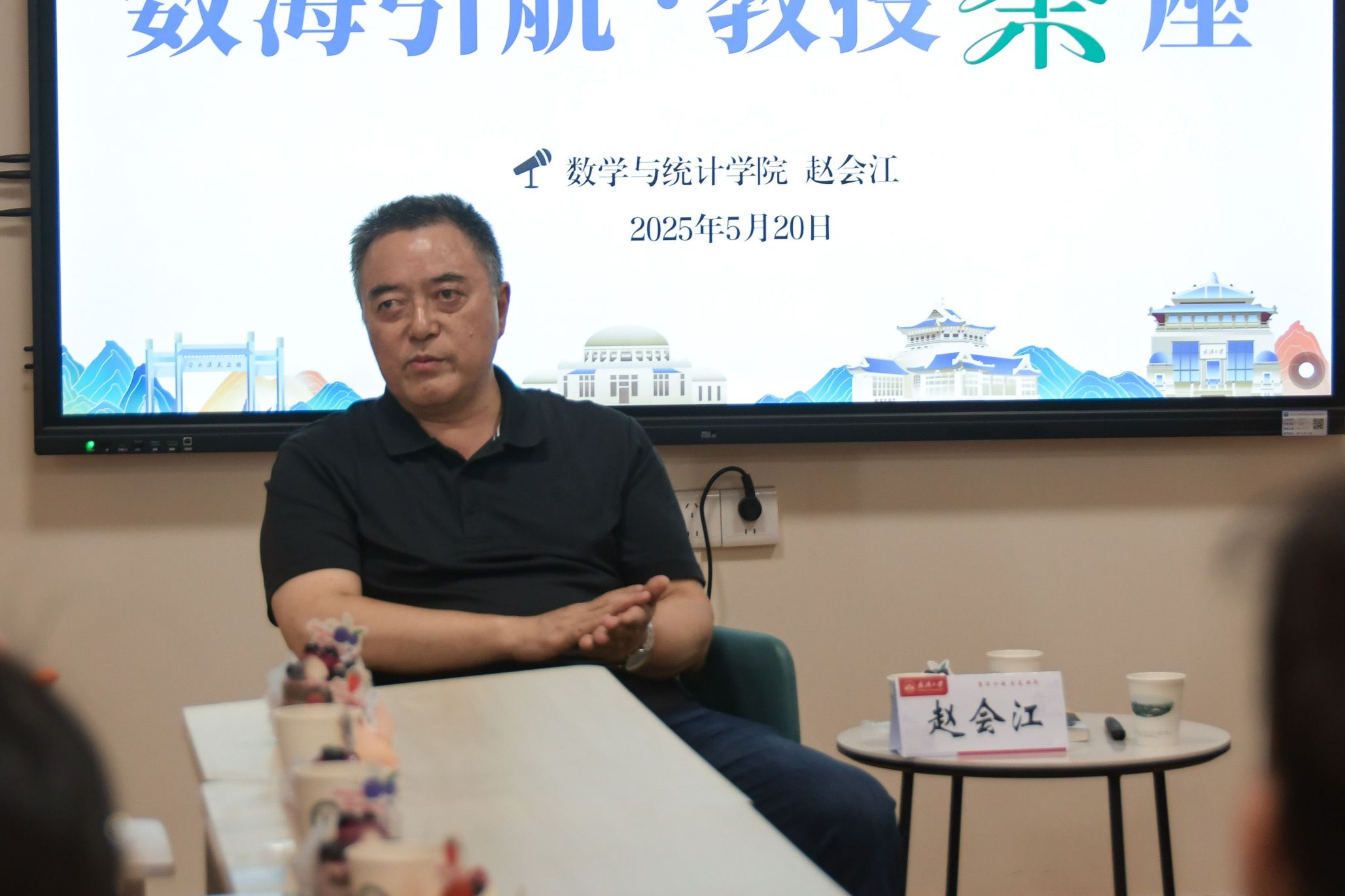
While sharing personal stories, Professor Zhao focused on the broader national development landscape, emphasizing the pivotal role of foundational disciplines—particularly mathematics—in innovation-driven progress. He highlighted significant recent national investments in mathematics, such as establishing research platforms like the “National Tianyuan Mathematics Center for Central China” led by Wuhan University and the “Hubei National Center for Applied Mathematics,” alongside support initiatives like the national key R&D program “Mathematics and Applied Mathematics.” He invoked President Zhang Pingwen's metaphor that “the spring of mathematical development has arrived,” encouraging students to seize the opportunities of the era and integrate their personal aspirations into the grand journey of national technological transformation.
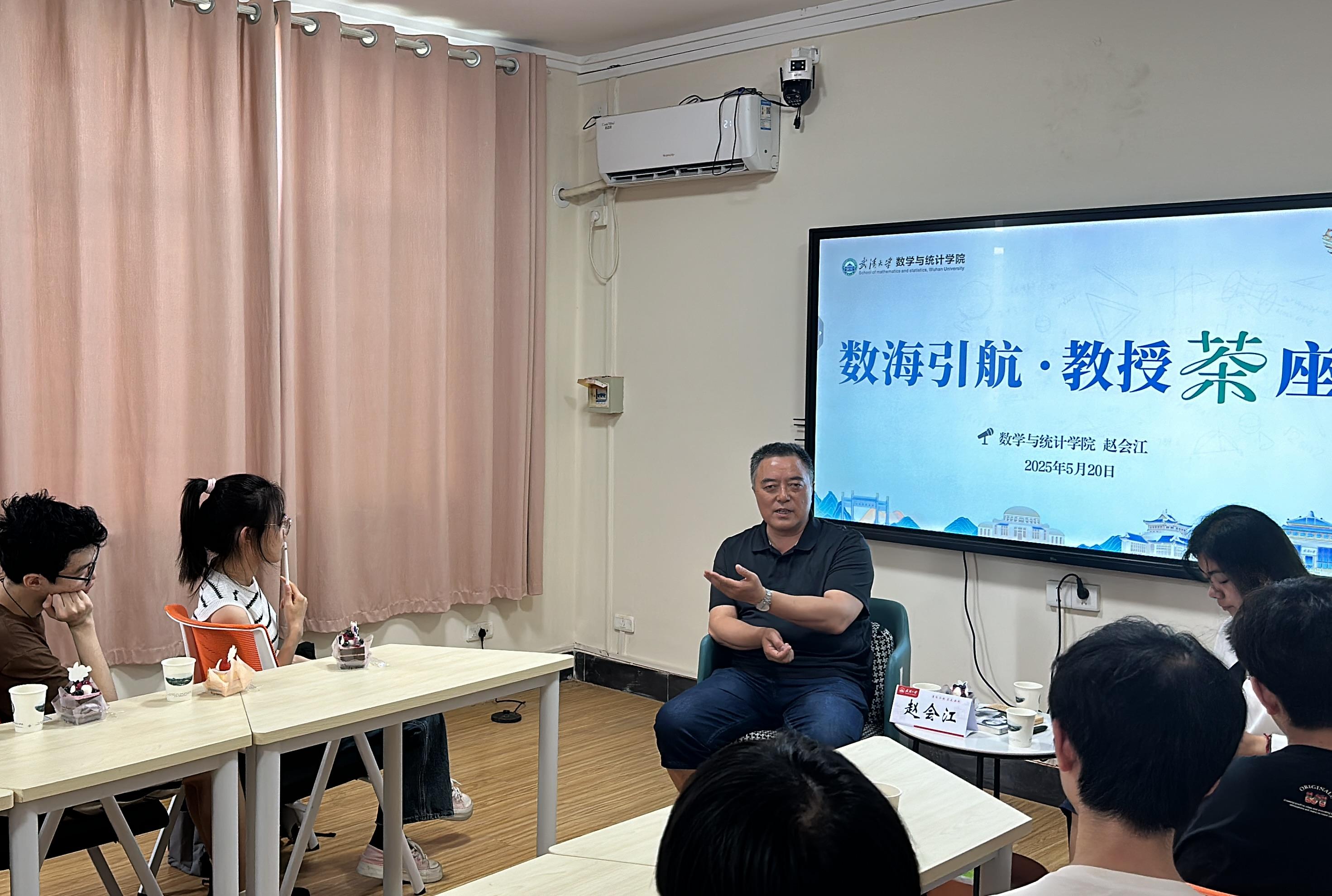
During the interactive session, addressing a student's question on “how to tackle interdisciplinary challenges,” Professor Zhao advised, “Don't circle around the periphery; dive deep into the core of the problem.” He shared his experience researching partial differential equations and the Boltzmann equation, using this work as an example to illustrate research approaches for overcoming difficulties in scientific inquiry. He emphasized the importance of organizing literature and writing reviews to map out the field's trajectory, advocating for an efficient learning model of “learning by doing.” Regarding literature selection, he advised students to both deeply study foundational works and stay attuned to cutting-edge developments, stressing the importance of “reading an article until you can articulate its contributions and limitations in your own words.”
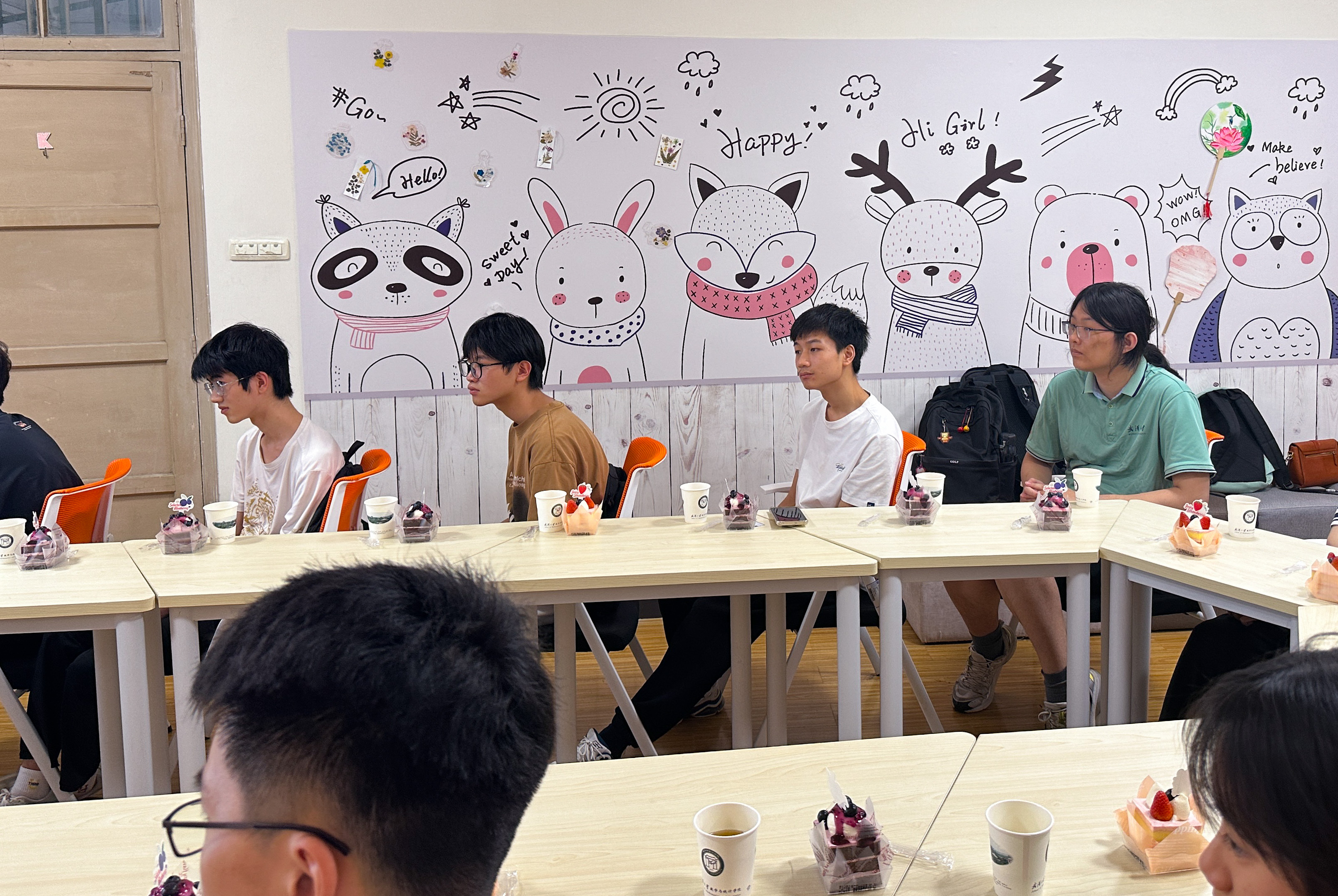
When discussing the challenges and opportunities AI presents for mathematical research, Professor Zhao admitted he is not an expert in the field but acknowledged AI's auxiliary role in tasks like text processing and English proofreading. He advised students to make good use of AI tools to enhance their learning efficiency. Addressing undergraduates' confusion about “finding life's purpose,” Professor Zhao offered a simple yet profound answer: What you love matters most. Drawing from his own experience, he believes systematic training in mathematics cultivates a unique way of thinking that becomes an inherent advantage. He also shared the story of mathematician Terrence Tripes to illustrate the importance of broad knowledge accumulation.
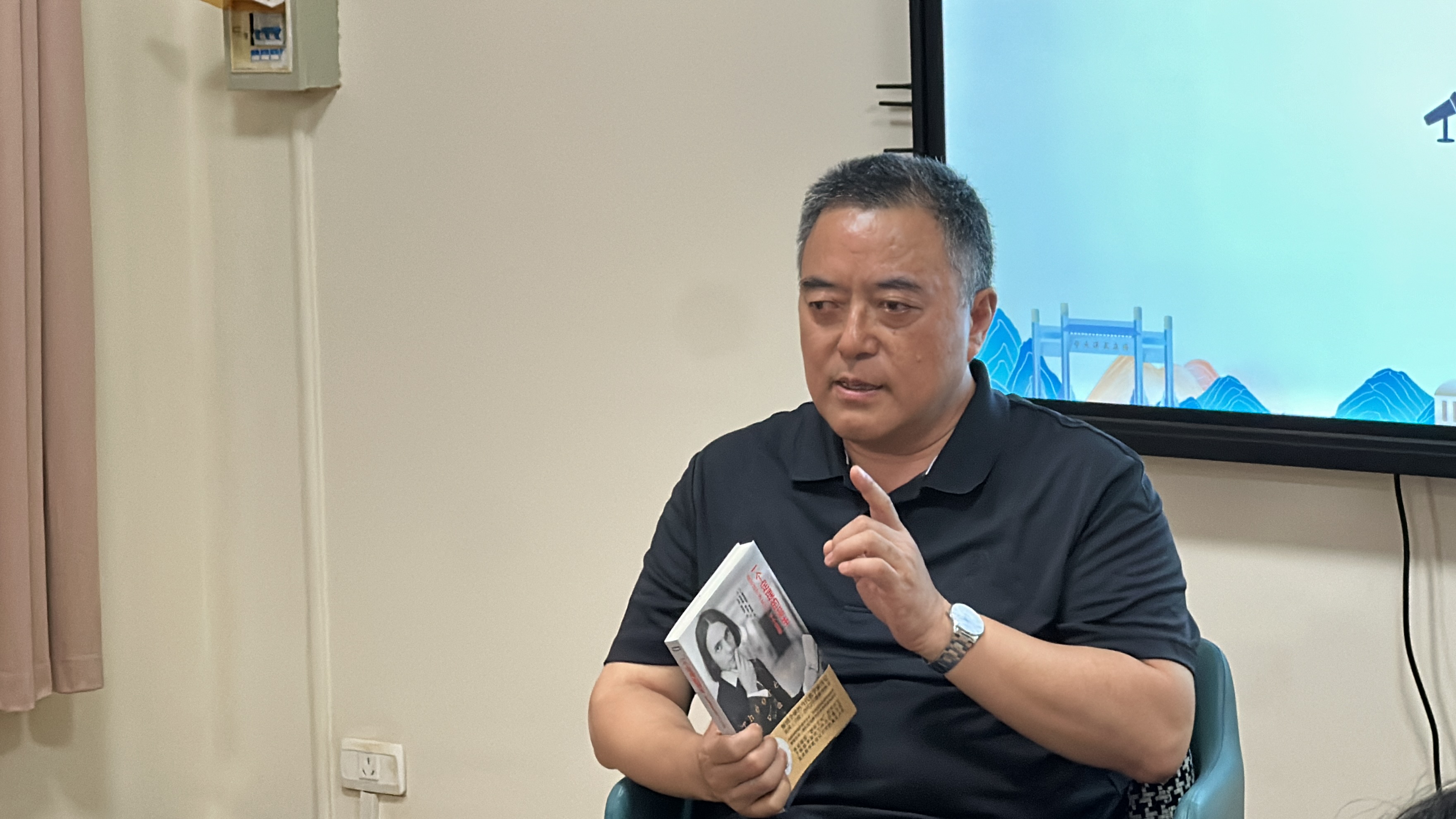
At the conclusion of the event, Professor Zhao presented each student with a copy of Fields Medalist Cédric Villani's book, The Birth of a Theorem: My Thousand Days and Nights with the Fields Medal. In this book, French mathematician Cédric Villani recounts his journey to winning the Fields Medal through his research on nonlinear Landau damping and the Boltzmann equation, presented in diary form. It reveals the entire process of a mathematical theorem's birth and offers a glimpse into the authentic life of a researcher. Professor Zhao hopes that by reading this book, students will gain a deeper understanding of mathematicians' research journeys and thought processes, spark their passion for mathematics and spirit of exploration, and lay a solid foundation for future engagement in mathematical research.
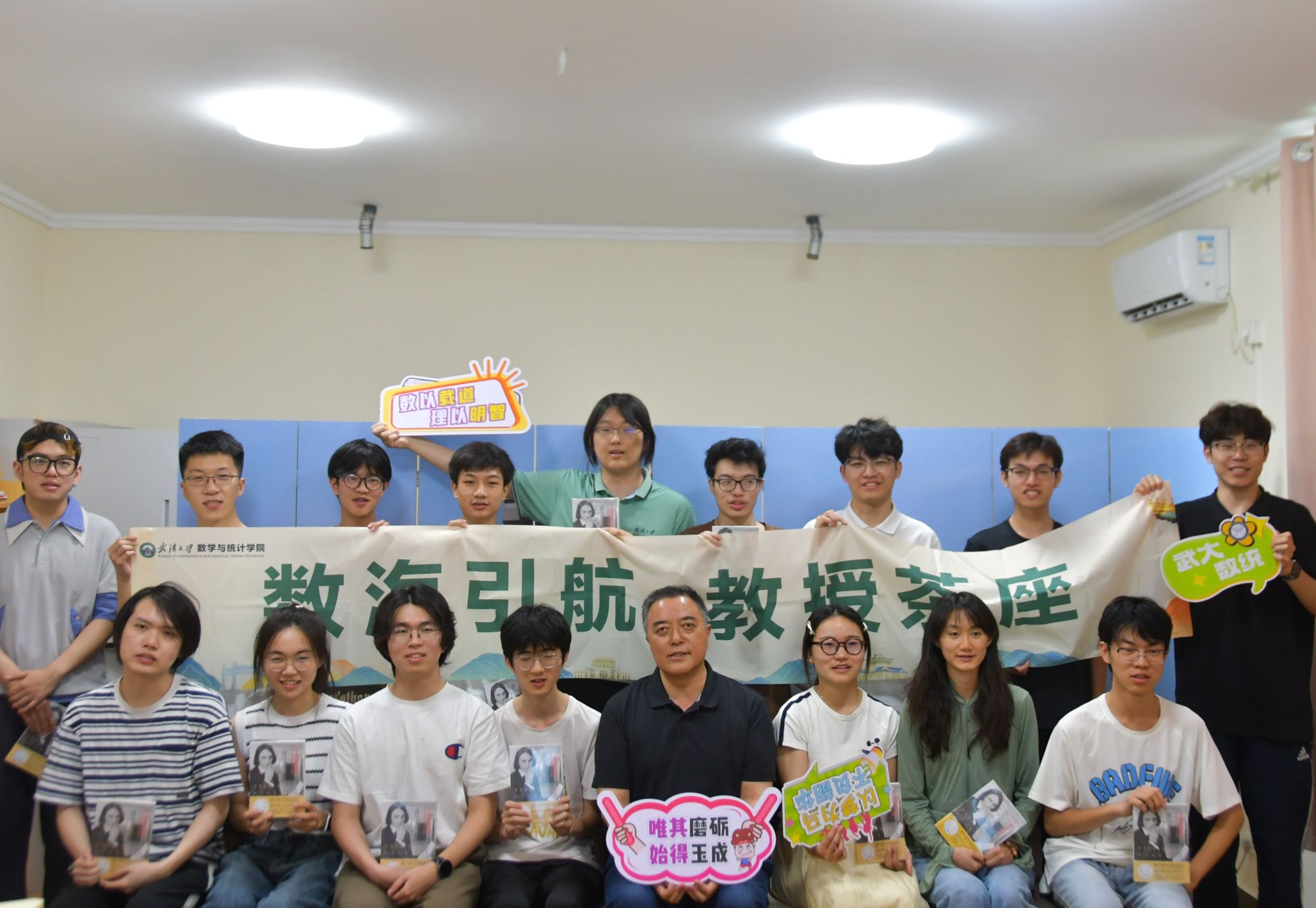
Professor's Tea Talk Series · Micro Quotes
Micro Quote 1: Now is the time when our nation most needs talent in foundational disciplines like mathematics. This is a critical period for promoting independent technological innovation and industrial upgrading—a springtime for mathematics development. We must seize this precious opportunity for growth.
Micro Quote 2: Mathematics students should broaden their academic horizons. By extensively reading relevant literature, they can delve into the core of problems rather than merely circling around peripheries. When learning new knowledge, hands-on practice is essential to enhance learning efficiency through application.
Micro Quote 3: When reading literature, pay attention to both classics and the latest developments. Classic works help build a solid foundation, while cutting-edge research reveals frontier directions. During reading, deeply understand the core ideas and research methods, consider their value and limitations in the current research context, and systematically organize your thoughts based on this foundation.
Micro Quote 4: AI is a powerful tool demonstrating immense potential in mathematical research. Every era presents new opportunities—AI is ours.
Micro-quote 5: The mindset cultivated through mathematics becomes your invisible advantage.
Micro-quote 6: Mastering mathematics or excelling in mathematical research is a systematic endeavor that advances through problem-solving. Engaging with specialized mentors is crucial—learning to “ask questions” helps you discover the most suitable learning path and methods.